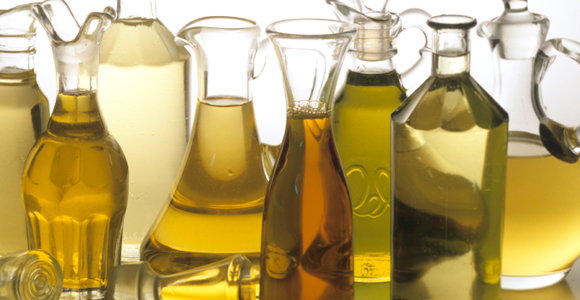We know that it's just as important to pay attention to the type of fat in our diet as it is to monitor our total fat. Gone are the days of extremely low-fat diets. Make way for healthy, beneficial fats. Our bodies need fat as they play critical roles in our vascular and nervous systems. According to the Academy of Nutrition and Dietetics, adults should get 20 to 35 percent of their total daily calories from fats and also try to reduce the intake of saturated and trans fats while replacing those unhealthy fats with beneficial omega-3 fatty acids.
With so many types of healthy fats in both our food supply and in the form of supplements, it can be easy to get overwhelmed by all that's out there. Let's break it down and igure out what's fact and what's fiction about fatty acids.
What Exactly Are Fatty Acids?
Fatty acids are the predominant type of fat in our diets (mainly found as dietary triglycerides). There are unsaturated fats (the good guys), saturated fats (the bad guys) and trans fats (the most evil guys). We'll focus mostly on the good guys because we need more of them around.
Monounsaturated Fatty Acids (MUFAs)
Palmitoleic and Oleic Acid - Palmitoleic acids are found in several fish oils and beef while oleic acid can be found virtually throughout our entire food supply in almost all oils and fats, as well as in nuts, avocados and seeds.
Elaidic Acid - This MUFA is found in partially-hydrogenated oils and it not only raises your total and bad cholesterol (LDL), it also lowers your good cholesterol (HDL) and causes inflammation. Thumbs down!
Vaccenic Acid - This is a mysterious MUFA we don't know much about yet other than it's found in meats and butter.
Polyunsaturated Fatty Acids (PUFAs)
The Mighty Omega-3 Fatty Acids
Alpha-Linolenic Acid (ALA) - This is found in canola and soybean oil, walnuts and flaxseed. Small amounts are also housed in spinach, kale and other greens. ALA can reduce your chance of cardiovascular events.
Docosahexaenoic Acid (DHA) and Eicosapentaenoic Acid (EPA) - These come from fish oil and algae. DHA and EPA cut your chance of sudden death by improving your platelet and endothelial cell functioning and by having positive influences on the development and overall health of your nervous system.
Omega-6 Fatty Acids
Linoleic Acid - This is plentiful in nuts, seeds and vegetable oils (liquid varieties) and reduces your total and bad (LDL) cholesterol.
Arachidonic Acid - This fatty acid, abundant in eggs, fatty fish, meats, and poultry, plays an important role in immune function.
Conjugated Linoleic Acid (CLA) - This omega-6 fatty acid has been shown to guard against cancer and some studies showed it reduced fat mass in some individuals but it has not been shown to reduce total body weight. CLA is found in butter, dairy and beef. A dose of 3.2 g per day was effective for fat mass reduction in studies.
What About Fish Oil Supplements?
Of course, it's better to take a dietary-based approach to get your nutrients, but if you can't eat fish because of allergies or you don't like the taste, or if you don't consume enough food sources of omega-3 fatty acids, you may benefit from supplemental omega-3 fats, aiming for 500 mg per day. If you have heart disease or high triglycerides, you may benefit from higher doses of fish oil supplements. However, always talk to your physician before starting any new dietary supplement.
If you are a vegetarian, you can purchase omega-3 fatty acid supplements that do not contain fish oil. These supplements contain ALA, which is partially converted to EPA and DHA.
It's generally better to get your nutrients from foods rather than from supplements because foods provide other beneficial compounds (some we may have yet to discover) that can't be obtained by taking an isolated form of fatty acid. For example, fatty fish also give you vitamins and minerals. A diet that is rich in vegetables, fruits, nuts, seeds, legumes, fatty fish, whole-grain products, plant oils and lean sources of protein, while also low in saturated fatty acids, should provide you with the appropriate amount of healthy fatty acids.
Kari Hartel, RD, LD is a Registered, Licensed Dietitian and freelance writer based out of St. Louis, MO. Kari is passionate about nutrition education and the prevention of chronic disease through a healthy diet and active lifestyle. Kari holds a Bachelor of Science in Dietetics from Southeast Missouri State University and is committed to helping people lead healthy lives. She completed a yearlong dietetic internship at OSF St. Francis Medical Center in Peoria, IL, where she worked with a multitude of clients and patients with complicated diagnoses. She planned, marketed, and implemented nutrition education programs and cooking demonstrations for the general public as well as for special populations, including patients with cancer, heart disease, diabetes, Alzheimer's disease, obesity, and school-aged children. If you would be interested in working with Kari one-on-one, sign-up for FitDay Dietitian.



